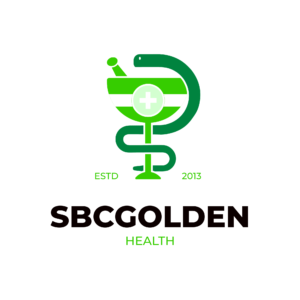Have you ever wondered why some people seem to be natural learners, effortlessly absorbing new information and excelling in their studies? Do you find yourself struggling to retain knowledge or feeling overwhelmed by the volume of material you need to learn? From effective study techniques to memory retention strategies, there are countless approaches to learning. But how do you separate the effective methods from the noise?
Join us on a journey to master the art of learning as we explore valuable tips and strategies to improve your learning skills. In this article, we will delve into the world of accelerated learning methods, cognitive learning approaches, and effective learning strategies. Discover the secrets to enhancing your study skills, developing critical thinking skills, and optimizing your use of educational resources.
Unlock your full learning potential and embark on a path of academic success as we unravel the mysteries of effective learning. Get ready to revolutionize your learning journey!
Key Takeaways:
- Learn effective study techniques to improve your learning skills.
- Discover memory retention strategies for better information recall.
- Explore accelerated learning methods and cognitive learning approaches.
- Develop critical thinking skills and enhance your ability to analyze information.
- Optimize your use of educational resources and access valuable learning materials.
Unveiling the Keys to Accelerated Learning
In this section, we will delve into the keys to accelerated learning. By understanding and implementing effective learning techniques, you can enhance your ability to acquire new information efficiently. We will explore the essence of cognitive learning approaches and discuss the importance of optimizing educational resources for quicker assimilation of knowledge.
The Essence of Cognitive Learning Approaches
Cognitive learning approaches focus on understanding how the brain processes information and employing strategies that align with the natural workings of our minds. By utilizing these approaches, you can enhance your learning speed and improve your overall comprehension.
One effective cognitive learning technique is chunking. By breaking down complex information into smaller, manageable chunks, you can make it easier for your brain to process and retain information. This approach allows you to focus on one concept at a time, facilitating deeper understanding and quicker assimilation.
Another powerful cognitive learning approach is interleaving. Instead of concentrating on a single topic for an extended period, interleaving involves switching between different subjects or concepts. This technique enables you to make connections between different areas of knowledge, fostering a holistic understanding and improving your ability to recall information.
Optimizing Educational Resources for Quicker Assimilation
Alongside cognitive learning approaches, optimizing educational resources is crucial for quicker assimilation of knowledge. By utilizing the right resources, you can enhance your learning experience and accelerate your understanding of new concepts.
Online learning platforms provide a wealth of educational resources, including textbooks, video lectures, interactive tutorials, and quizzes. These resources offer flexibility and convenience, allowing you to customize your learning journey based on your specific needs and preferences.
Additionally, leveraging technology tools like educational apps and online forums can expand your knowledge base and provide real-time access to expert insights. These resources enable you to engage in interactive learning experiences, collaborate with peers, and gain a deeper understanding of the subject matter.
In summary, by incorporating cognitive learning approaches and optimizing educational resources, you can unlock the keys to accelerated learning. Through these strategies, you can enhance your learning speed, improve your retention of information, and ultimately achieve higher levels of mastery in your chosen field.
Learn how to learn
In this section, we will focus on the concept of learning how to learn. To become a more effective learner, it is essential to understand the principles of meta-learning and develop strategies for becoming an autonomous learner.
Understanding Meta-Learning Principles
Meta-learning involves understanding the process of learning itself. It encompasses the ability to reflect on and observe your own learning methods, strengths, and weaknesses. By understanding how you learn best, you can tailor your approach to optimize your learning experience.
Meta-learning principles allow you to:
- Identify your preferred learning style
- Recognize effective study techniques
- Adapt your learning approach to different subjects
- Apply strategies for memory retention
- Manage time effectively

Strategies for Becoming an Autonomous Learner
Becoming an autonomous learner means taking control of your learning journey and actively seeking out opportunities to enhance your knowledge and skills. By implementing the following strategies, you can become a more efficient and effective learner:
- Set clear goals: Define what you want to achieve and break down your goals into manageable steps.
- Develop a learning routine: Establish consistent study habits, allocate dedicated time for learning, and create a conducive learning environment.
- Practice self-discipline: Stay motivated and disciplined by setting deadlines and holding yourself accountable.
- Seek feedback: Actively seek feedback from peers, mentors, or instructors to improve your understanding and refine your learning strategies.
- Embrace challenges: Push beyond your comfort zone and embrace challenging tasks that promote growth and development.
By adopting these strategies and actively engaging in the learning process, you can become a more independent, self-directed learner and achieve optimal results.
Personalizing Your Learning Pathway
When it comes to learning, one size does not fit all. That’s why personalized learning has gained significant traction in recent years. By tailoring the learning experience to individual needs and preferences, personalized learning allows students to take charge of their education and create a customized learning experience like never before.
So, what exactly is personalized learning? It goes beyond the traditional one-size-fits-all approach, recognizing that each student has unique strengths, interests, and learning styles. Personalized learning aims to meet students where they are and provide them with the resources and support they need to succeed.
Through personalized learning, students can engage in an individualized learning path that resonates with their abilities and interests, leading to a more meaningful and fulfilling educational journey. By customizing the learning experience, personalized learning empowers students to take ownership of their education and proactively pursue knowledge in a way that suits them best.
One of the key benefits of personalized learning is the improved engagement and motivation it generates. When students have a say in their learning path, they are more likely to feel invested in their education. This heightened engagement can have a positive impact on academic performance, as students become more actively involved and motivated to learn.
Furthermore, personalized learning allows students to focus on their unique strengths and interests. By capitalizing on these areas of expertise, students can develop a deeper understanding of the subject matter and pursue their passions. This customized learning experience not only enhances their knowledge but also fosters a sense of fulfillment and purpose.
As technology continues to advance, personalized learning has become more accessible than ever before. Online platforms and educational tools provide students with the flexibility to learn at their own pace and explore a range of learning resources. The integration of technology also allows for data-driven insights that can further personalize the learning experience, enabling educators to tailor instruction to individual needs.
In conclusion, personalized learning offers a transformative approach to education. By personalizing the learning pathway, students can tap into their unique strengths, interests, and learning styles, resulting in a more engaging and fulfilling learning experience. As we strive to meet the diverse needs of today’s learners, personalized learning paves the way for an educational journey that is tailored to each individual.
Memory Retention Strategies in Action
In this section, we will delve into memory retention strategies and explore how they can be applied in practice. Remembering and recalling information effectively is crucial for successful learning. By implementing the right strategies, you can optimize memory retention and improve your long-term learning outcomes.

The Role of Spaced Repetition and Active Recall
Spaced repetition is a memory retention technique that involves reviewing information at increasing intervals over time. This strategy capitalizes on the spacing effect, which suggests that we remember information better when it is revisited at specific intervals. By spacing out your review sessions and strategically reinforcing the material, you can strengthen your memory and improve retention.
Active recall is another powerful memory retention tactic. It involves actively retrieving information from memory rather than passively reviewing it. Through practice quizzes, self-testing, or engaging in discussions, you can enhance your ability to recall information. This practice stimulates your brain to efficiently retrieve and reinforce knowledge, leading to better long-term retention.
Effective Learning Tactics for Long-Term Retention
Besides spaced repetition and active recall, there are several other effective learning tactics that can optimize memory retention:
- Elaborative encoding: Relating new information to existing knowledge or creating meaningful associations can improve understanding and retention.
- Visual aids: Using visual imagery, diagrams, or mind maps can enhance memory recall by providing a visual representation of the information.
- Mnemonic devices: Employing memory aids such as acronyms, rhymes, or visualization techniques can facilitate the recall of complex information.
- Chunking: Breaking down information into smaller, manageable chunks makes it easier to process and remember.
- Contextual learning: Connecting new information to real-life examples or personal experiences helps create strong mental associations, leading to improved retention.
By incorporating these effective learning tactics into your study routine, you can optimize memory retention and reinforce your learning for long-term success.
Transforming Study Habits for Peak Performance
In order to achieve peak performance in your studies, it’s essential to transform your study habits and adopt effective techniques that optimize your learning process. By making positive changes, you can maximize your learning potential and enhance your overall performance. Here are some key strategies to consider:
- Organize Your Study Space: Create a dedicated and clutter-free study area that is conducive to learning. Ensure you have all the necessary materials and resources readily available.
- Set Clear Goals: Define specific and measurable study goals. Break them down into smaller tasks to make them more achievable and track your progress.
- Manage Your Time Effectively: Create a study schedule that allocates dedicated time for each subject or task. Prioritize your study sessions and eliminate distractions to make the most of your time.
- Use Active Learning Techniques: Engage actively with the material by summarizing key concepts, teaching the content to someone else, or discussing it with peers. This promotes deeper understanding and retention.
- Practice Regularly: Regular practice and repetition are key to solidifying your knowledge and skills. Implement spaced repetition techniques to review previously learned material at strategic intervals.
- Take Breaks: Schedule regular breaks during your study sessions to relax and recharge. Resting your mind allows for better concentration and prevents burnout.
- Seek Support: Don’t hesitate to seek help or guidance when needed. Reach out to teachers, tutors, or classmates for clarification or additional resources.
- Stay Motivated: Find ways to stay motivated and maintain a positive mindset. Reward yourself for small achievements and keep your long-term goals in mind.
Remember, transforming your study habits takes time and effort. Consistency and perseverance are key to achieving peak performance. Keep refining and adapting your strategies to suit your individual needs and learning style.
By implementing these effective study techniques, you can optimize your learning process, enhance your understanding of the material, and ultimately achieve peak performance in your studies.
Critical Thinking: The Cornerstone of Learning
In order to become an effective and discerning learner, it is essential to develop critical thinking skills. Critical thinking serves as the cornerstone of learning, allowing individuals to analyze, evaluate, and understand information more deeply. By honing these skills, learners can become active participants in their own education, actively questioning and evaluating the concepts and ideas they encounter.
Developing Analytical Skills through Engaged Learning
One way to develop critical thinking skills is through engaged learning. Engaged learning involves active participation, curiosity, and reflection. It encourages learners to go beyond surface-level understanding and delve into the underlying principles and connections within a subject. By fostering analytical skills through engaged learning, learners can gain a deeper understanding of the material and enhance their ability to think critically.
“Engaged learning is not just about absorbing information but actively questioning, analyzing, and evaluating it.” – Dr. Emma Sullivan, Education Psychologist
Engaged learning can take various forms, such as asking thought-provoking questions, participating in discussions, conducting research, and challenging assumptions. By actively engaging with the material and applying analytical skills, learners can develop their critical thinking abilities and achieve a more comprehensive understanding of the subject matter.
Fostering an Inquisitive Mindset
In addition to developing analytical skills, fostering an inquisitive mindset is crucial for effective critical thinking. An inquisitive mindset encourages curiosity, exploration, and a desire for deeper knowledge. It involves asking questions, seeking alternative perspectives, and embracing intellectual curiosity.
By cultivating an inquisitive mindset, learners can actively seek out new information, challenge assumptions, and think critically about the world around them. This curiosity-driven approach to learning expands horizons, encourages lifelong learning, and inspires a genuine passion for knowledge.

Mobile Learning and the Landscape of Modern Education
In today’s digital age, mobile learning has revolutionized the landscape of modern education. With the advancement of technology, learners now have the opportunity to access educational resources anytime and anywhere through their mobile devices. This shift towards mobile learning has brought about numerous benefits, such as increased flexibility, personalized learning experiences, and improved knowledge retention.
Security and Accessibility in Remote Learning
One of the key considerations in remote learning is ensuring the security and accessibility of educational content. As learners engage with digital platforms, it is essential to safeguard sensitive data and protect against cyber threats. Institutions must implement robust security measures to ensure the privacy and confidentiality of student information.
In addition, accessibility is a critical aspect of remote learning to ensure that educational resources and platforms are available to all learners. By incorporating features such as closed captions, screen reader compatibility, and adjustable font sizes, institutions can create an inclusive learning environment that caters to students with diverse needs and abilities.
Leveraging Technology for Enhanced Learning Experiences
The integration of technology in education has opened up new possibilities for enhanced learning experiences. By embracing digital tools and platforms, educators can create interactive and immersive learning environments that stimulate student engagement and foster active participation. Technology-enhanced learning allows for the incorporation of multimedia elements, gamification, and collaborative features, making the learning process more dynamic and enjoyable.
Furthermore, technology enables personalized learning experiences, allowing students to tailor their educational journey according to their individual pace and preferences. Adaptive learning platforms use artificial intelligence to analyze student performance and provide targeted recommendations, ensuring that students receive the support and resources they need to succeed.
In summary, mobile learning has transformed the landscape of modern education, empowering learners with unprecedented access to information and resources. By prioritizing security and accessibility in remote learning and leveraging technology for enhanced learning experiences, institutions can create a dynamic and inclusive educational environment that maximizes student engagement and achievement.
Strategies for Effective Study Techniques
When it comes to studying, employing the right strategies can make all the difference. By implementing effective study techniques, you can improve your learning efficiency and enhance your overall academic performance. In this section, we will explore various approaches and methods that can help you optimize your studying skills and make the most out of your study sessions.
“The secret of getting ahead is getting started.” – Mark Twain
To begin, it’s essential to establish a conducive study environment. Find a quiet and well-lit space where you can focus without distractions. Eliminate any potential interruptions, such as turning off notifications on your phone or computer. Creating a dedicated study area will help enhance your concentration and productivity.
Next, develop a study schedule that works for you. Set realistic goals and allocate specific time slots for different subjects or topics. This will help you stay organized and ensure that you cover all the necessary material. Break your study sessions into manageable chunks, and don’t forget to include short breaks to recharge your mind.
Utilizing active learning techniques can significantly improve your understanding and retention of information. Instead of passively reading or re-reading your notes, try engaging in activities such as summarizing the material in your own words, teaching it to someone else, or creating flashcards to test your knowledge. By actively participating in the learning process, you can reinforce your understanding and improve long-term retention.
Another effective strategy is to vary your study methods and incorporate different learning styles. Experiment with visual aids, diagrams, or mnemonics to help you remember complex concepts. Exploring different approaches can cater to your individual learning preferences and make studying more enjoyable.
Additionally, practice self-reflection and self-assessment. Regularly review your progress, identify areas of strength and weakness, and adapt your study techniques accordingly. Seeking feedback from teachers or peers can provide valuable insights and help you refine your learning strategies.
Key Takeaways:
- Create a conducive study environment free from distractions.
- Develop a study schedule and set realistic goals.
- Utilize active learning techniques to reinforce understanding.
- Experiment with different study methods to cater to your learning style.
- Regularly review your progress and seek feedback for improvement.
By implementing these strategies for effective study techniques, you can optimize your learning experience and achieve better results. Remember, studying is not just about the quantity of time spent, but the quality of your approach. So, embrace these strategies, stay motivated, and embark on your journey towards academic success!
Maximizing Cognitive Learning Methods for Better Understanding
In the pursuit of effective learning, cognitive learning methods play a crucial role in improving our understanding and retention of information. By leveraging concepts such as chunking and interleaving, along with building robust mental representations, we can enhance our ability to process and comprehend new knowledge.
Applying Concepts of Chunking and Interleaving
Chunking involves organizing information into smaller, manageable chunks, making it easier for the brain to process and remember. Rather than trying to absorb large amounts of information in one go, breaking it down into smaller, meaningful units allows for better comprehension and retention. By organizing related information into coherent chunks, we can create mental structures that facilitate learning.
Interleaving, on the other hand, involves mixing different topics or concepts within a study session. Instead of studying a single subject at a time, interleaving helps us build connections and transfer knowledge between different topics. This approach promotes deeper understanding by encouraging the brain to actively compare and contrast ideas, leading to better long-term retention and application of knowledge.
Combining chunking and interleaving techniques can greatly enhance our understanding of complex subjects. By breaking down information into manageable chunks and mixing related topics, we can create a framework that encourages active learning and better integration of knowledge.
Building Robust Mental Representations
Mental representations are the cognitive structures that organize our understanding of the world. By consciously constructing these mental frameworks, we can deepen our comprehension and make meaningful connections between different concepts. Building robust mental representations involves engaging with the material at a deeper level and relating it to our existing knowledge and experiences.
One effective way to build robust mental representations is through the use of visualizations and diagrams. Visual aids help us visualize abstract concepts and connections, making them more tangible and memorable. By creating mental images and diagrams, we can enhance our understanding and recall of complex information.
Additionally, explaining concepts to others in our own words can strengthen our mental representations. The act of articulating and teaching a topic helps us identify gaps in our understanding and solidify our knowledge. It also allows us to approach the subject from different perspectives, enhancing our overall comprehension.
By actively constructing robust mental representations, we can deepen our understanding and retain knowledge in a more meaningful and impactful way.

Comparing Chunking and Interleaving Techniques
| Technique | Definition | Benefits |
|---|---|---|
| Chunking | Breaking down information into smaller, meaningful chunks |
|
| Interleaving | Mixing different topics or concepts within a study session |
|
In conclusion, maximizing cognitive learning methods like chunking and interleaving, along with building robust mental representations, offers a powerful framework for better understanding and retention of new knowledge. By incorporating these techniques into our learning strategies, we can enhance our ability to comprehend complex subjects, make meaningful connections, and ultimately achieve better learning outcomes.
Improving Study Skills with the Feynman Technique
In this section, we will explore how to improve study skills with the Feynman Technique. This effective study method involves explaining complex concepts in simple terms, as if you were teaching them to someone else. By applying the Feynman Technique, you can enhance your understanding and retention of the material, making your study sessions more productive and efficient.
“The best way to learn is to teach.”
The Feynman Technique, named after the renowned physicist Richard Feynman, is based on the idea that the best way to truly understand something is to be able to explain it in simple language. When you are able to explain a concept as if you were teaching it to someone else, you are forced to break it down into its essential components and ensure you have a deep understanding of the material.
To apply the Feynman Technique, follow these steps:
- Choose a topic: Select a concept or subject that you want to study and understand better.
- Study and take notes: Read through the material and take detailed notes, ensuring you have a solid grasp of the key ideas.
- Explain it in simple terms: Pretend you are teaching the concept to someone who has no prior knowledge of the subject. Use simple language and avoid jargon or technical terms.
- Identify knowledge gaps: Pay attention to the areas where you struggle to explain the concept clearly. These are the areas where your understanding may be lacking, and you should focus on revisiting and reinforcing those points.
- Review and simplify: Go back to the material and review any areas that you found challenging to explain. Break them down further, simplify the language, and repeat the process until you can explain the concept clearly and concisely.
The Feynman Technique not only helps solidify your understanding of the material but also reveals any gaps in your knowledge. By teaching the subject in simple terms, you are highlighting the areas that require further attention and reinforcing your learning through active recall.

By incorporating the Feynman Technique into your study routine, you can improve your study skills and enhance your understanding of complex concepts. This technique encourages active engagement with the material and promotes a deeper level of comprehension. Give it a try and see how it transforms your learning experience!
Employing Successful Learning Strategies Beyond Rote Memorization
In this section, we will explore successful learning strategies that go beyond the traditional method of rote memorization. Instead of mindlessly cramming information, we will emphasize the importance of comprehension and understanding in the learning process. By adopting these strategies, you can enhance your learning outcomes and make your study routines more effective.
Emphasizing Comprehension Over Cramming
When it comes to learning, true understanding is far more valuable than mere memorization. Instead of mindlessly memorizing facts and figures, focus on comprehending the underlying concepts and principles. Take the time to connect new information with existing knowledge, allowing for a deeper understanding of the subject matter. By emphasizing comprehension over cramming, you will not only retain information better but also develop critical thinking skills that can be applied beyond the classroom.
Integrating Affective Context into Study Routines
Studies have shown that emotions play a significant role in learning and memory retention. By integrating affective context into your study routines, you can enhance your learning experience. Create a positive and engaging environment that stimulates your emotions and makes the learning process more enjoyable. This can be achieved by using multimedia materials, incorporating real-life examples, or even studying in a location that inspires you. By infusing your study routines with emotional significance and relevance, you can improve your focus, motivation, and overall learning outcomes.
Integrating successful learning strategies that prioritize comprehension and affective context into your study routines can revolutionize your learning experience. By moving beyond rote memorization, you will not only retain information more effectively but also develop critical thinking skills and a genuine passion for learning. Embrace these strategies and unlock your true potential in the pursuit of knowledge.
Conclusion
As we reach the end of this article, it’s important to recap the key points and takeaways that can help you master the art of learning. By continuously improving and refining your learning strategies, you can unlock your full potential and achieve remarkable growth and development. Remember, learning how to learn is an ongoing journey, and it requires dedication and persistence. But with the right tips and strategies at your disposal, you can navigate this path with confidence and success.
Throughout this article, we have explored various effective study techniques, memory retention strategies, and cognitive learning approaches that can enhance your learning experience. We have emphasized the importance of critical thinking, personalizing your learning pathway, and leveraging technology for enhanced learning experiences. By applying these insights, you can optimize your study habits, improve your comprehension and retention of information, and become a more autonomous and effective learner.
In summary, the key takeaways from this article include the significance of understanding meta-learning principles, developing analytical skills through engaged learning, and fostering an inquisitive mindset. Additionally, we have discussed the benefits of personalized learning, the role of spaced repetition and active recall in memory retention, and the power of the Feynman Technique for improving study skills. By incorporating these strategies into your learning routine, you can unlock your true potential and maximize your academic or professional achievements.
Remember, learning is a lifelong pursuit, and by implementing these key takeaways from this article, you can continue to enhance your learning skills and achieve your goals. So, keep exploring new strategies, adapting your approach, and never stop growing. The art of learning is yours to master!









